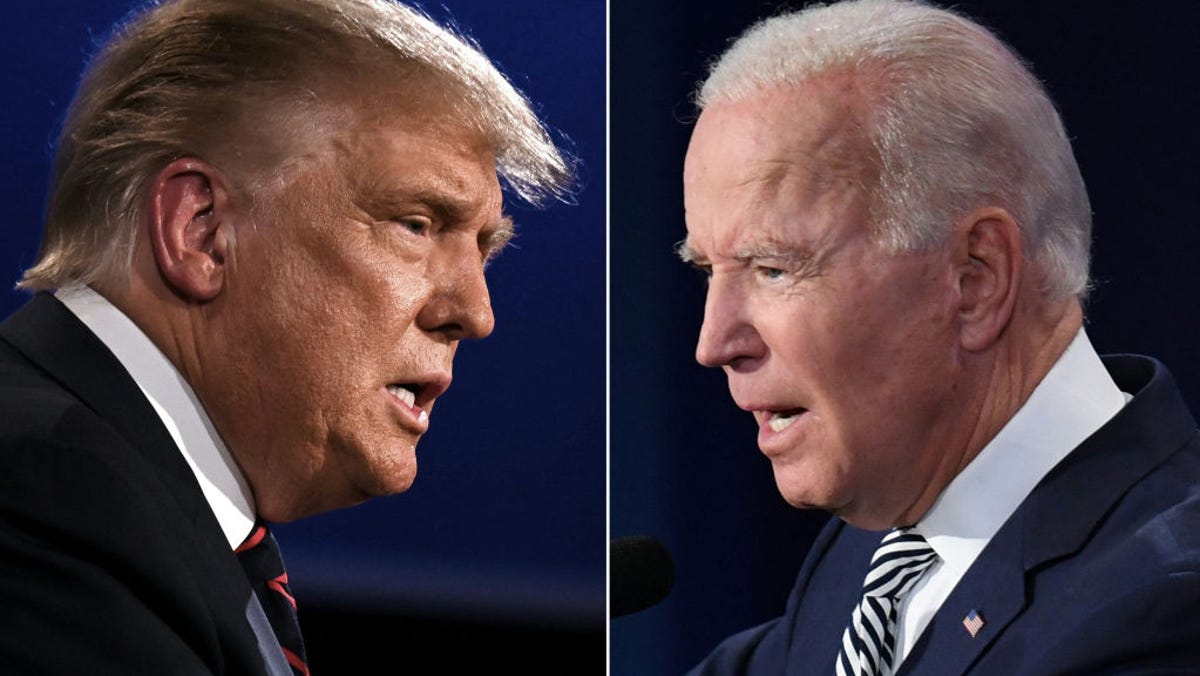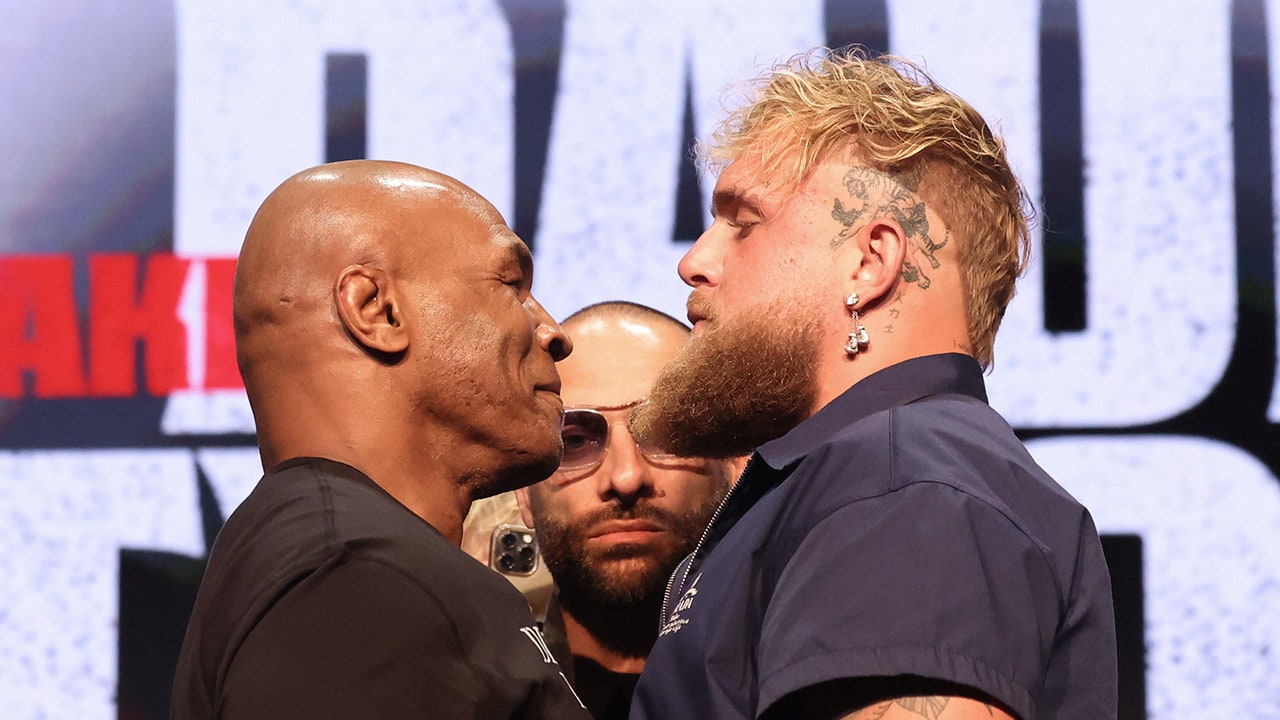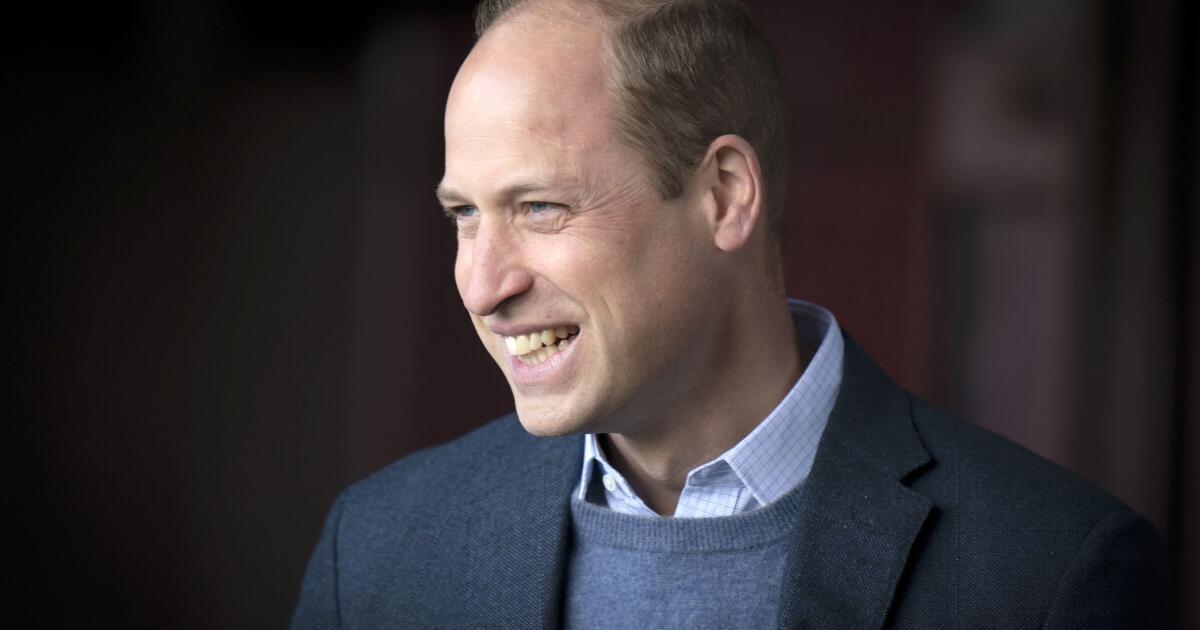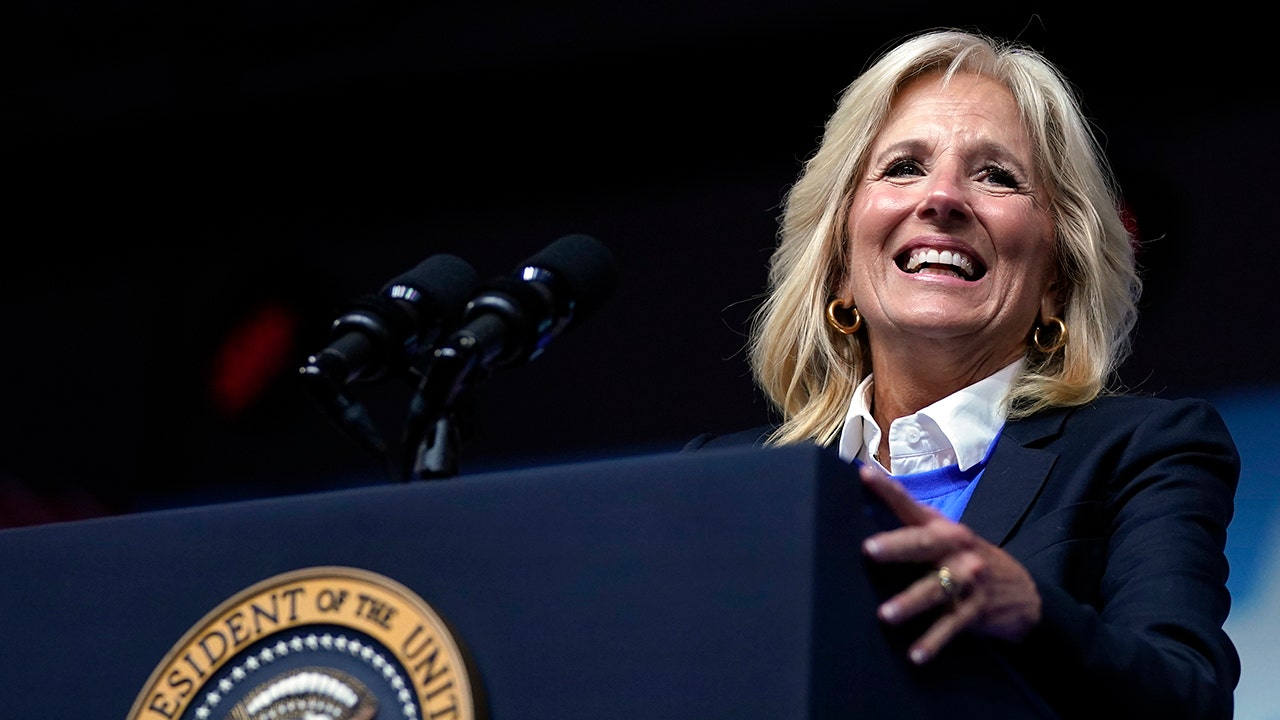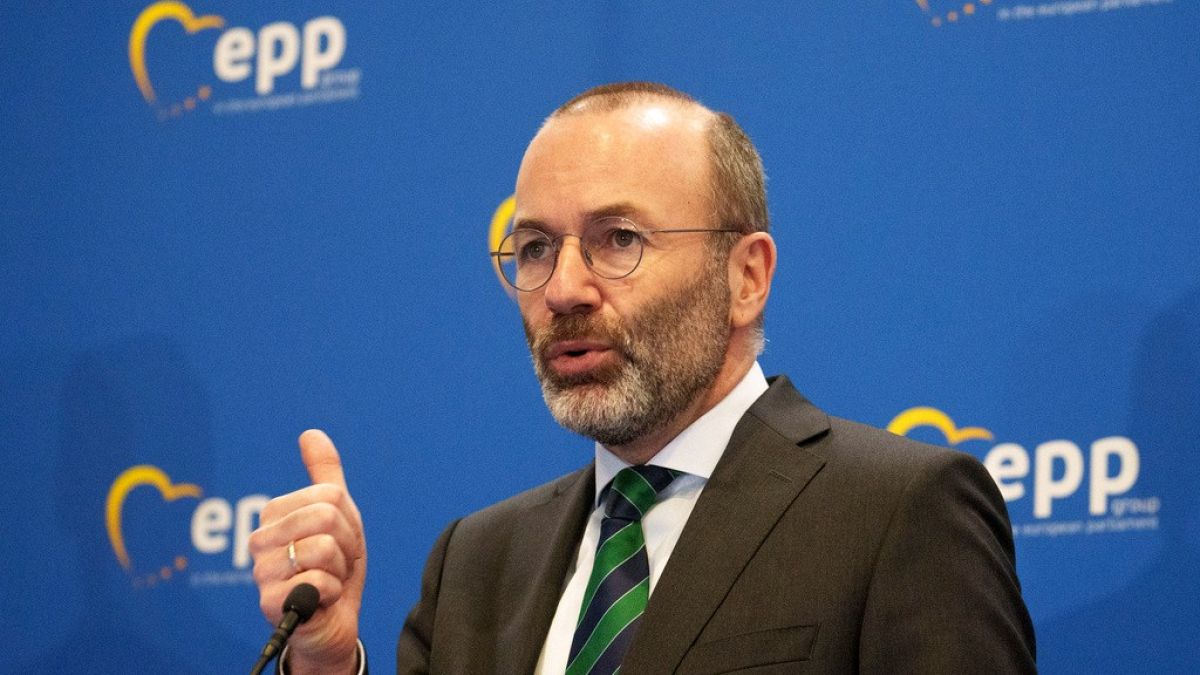World
Biden says her name — Laken Riley — at urging of GOP Rep. Marjorie Taylor Greene
WASHINGTON (AP) — It was what the Republicans demanded, but never expected.
President Joe Biden said her name.
“Laken Riley.”
Even before Biden started speaking, the topic of border security was certain to rise as one of the most tense moments in the State of the Union address.
Biden was confronted as he walked into the House chamber by Rep. Marjorie Taylor Greene, the hardline Republican, decked out in a red Trump MAGA hat and a t-shirt emblazoned with the message, which was also on a button she pressed into his hand.
“Say her name,” it said, the phrase evoking the language used by activists after the death of George Floyd and others at the hands of police.
The death of Laken Riley, a nursing student from Georgia, has become a rallying cry for Republicans, a tragedy that they say encompasses the Biden administration’s handling of the U.S-Mexico border amid a record surge of immigrants entering the country. An immigrant from Venezuela who entered the U.S. illegally has been arrested and charged with murder.
Midway through the speech, Biden started talking about border security and called on Congress to pass legislation to secure the border and modernize the country’s outdated immigration laws, praising the bipartisan effort that collapsed when his likely Republican presidential rival, Donald Trump, opposed it.
Greene interjected, “Say her name!”
The congresswoman from Georgia yelled, pointing a finger, and jabbing it toward Biden.
And then Biden did just that.
He held up the white button, and said: “Laken Riley.”
Biden spoke briefly of her death and he made reference to his own family’s trauma — his first wife and young daughter were killed in 1972 after an automobile crash. His son, Beau, died of brain cancer in 2015.
And then he urged Congress to work together to pass a border security compromise.
“Get this bill done!” Biden said.
He even called on Trump to stop fighting against any border deal.
“We can do it together,” he said.
With immigration becoming a top issue in the presidential election, Republicans are using nearly every tool at their disposal — including impeaching Homeland Security Secretary Alejandro Mayorkas — to condemn how the president has handled the border.
Hours earlier, the House voted to pass the “Laken Riley Act,” which would require the Department of Homeland Security to detain unauthorized migrants who are accused of theft.
Authorities have arrested on murder and assault charges Jose Ibarra, a Venezuelan man who entered the U.S. illegally and was allowed to stay to pursue his immigration case. He has not yet entered a plea to the charges.
Trump has used Riley’s death to slam Biden’s handling of the border and at one event this month told the crown that the president would never say her name.
Biden has also adopted some of the language of Trump on the border, and on Thursday night, he called the man charged with murdering Riley an “illegal.”
Greene had handed out the buttons earlier in the day. Biden also looked up to the gallery where many guests were seated, but Riley’s parents were not there.
Rep. Mike Collins, a Georgia Republican, said this week that he had invited Riley’s parents to the State of the Union address, but they had “chosen to stay home as they grieve the loss of their daughter.”

World
Lawrence Wong set to take centre stage as Singapore’s new prime minister

Singapore – For the first time in 20 years, Singapore will inaugurate a new prime minister, Minister for Finance and Deputy Prime Minister Lawrence Wong, who will take the reins of power in a ceremony on Wednesday, May 15.
The 51-year-old will replace Lee Hsien Loong – the eldest son of the country’s first Prime Minister Lee Kuan Yew – who has been in the job since August 2004.
Wong is only the fourth leader in Singapore’s 59-year history as an independent nation. Like his predecessors, he is a member of the People’s Action Party (PAP), co-founded by the elder Lee and the only ruling party Singaporeans have ever known.
The stage is now set for a general election in the city-state of 6 million people, which observers say could be held as early as this year, although the term of the current government does not expire until 2025.
At the last election in 2020, the PAP secured more than 61 percent of the vote, losing just 10 seats in the 98-member parliament to the opposition, but this was considered a sub-par performance given the opposition had won only six seats in the previous parliament.
The stakes are higher now, and a new leader is traditionally expected to gain a strong mandate from voters. Wong will be tasked with maintaining the dominance of the PAP in the face of an increasingly demanding electorate who want a greater say in governance and eschew the knuckleduster tactics and paternalistic politics of previous governments.
They are also tiring of the rat race, which Wong himself has acknowledged.
Among the most pressing issues on his plate: tackling the rising cost of living, an ageing population, a slowing economy and immigration. The PAP has also been rocked by a rare corruption scandal.
In addition, Wong must navigate the ever-present China-United States rivalry as the tiny island is a key ally to both superpowers.
Who is Lawrence Wong?
The mild-mannered Wong was selected by his peers among the “4G”, or fourth generation of leaders in Singapore’s political jargon, to be a successor to 72-year-old Lee in April 2022.
Something of a compromise candidate, he was not their first choice.
That was former central bank chief and Minister for Education Heng Swee Keat, 63, who had been appointed to succeed Lee in 2018. In a country renowned for its political stability, Heng sparked a mini political crisis by stepping aside two and a half years later, citing his age and admitting that he had not felt up to the task from the start.
Unlike many of his PAP peers, Wong did not come from the island’s establishment or attend its top schools. Going to university in the US on a government scholarship, he started out as an economist in the trade and industry ministry before entering politics in 2011.
After stints as a minister in less glamorous portfolios such as national development, he was not considered a potential prime minister, but the COVID-19 pandemic changed everything.
As co-leader of the country’s COVID-19 task force, Wong emerged as the public face of the government’s pandemic response, adroitly fielding questions from foreign media outlets in televised news conferences. Such events are a rarity in a country that performs dismally in the annual World Press Freedom rankings – Singapore was ranked 126th out of 180 countries and territories this year.

“Mr Wong is seen as a technocrat, [who is] friendly and approachable. He delivered well for the COVID-19 crisis, so he can be viewed as competent,” said former PAP lawmaker Inderjit Singh, who served alongside Lee in his central Ang Mo Kio ward for two decades.
Noting that Wong was only chosen two years ago after a period of political uncertainty, he added: “Anyone in his position will have his work cut out to show that he is indeed the right leader. He has a big task to quickly show that he is indeed the right person who can deliver.”
Leadership succession
Historically, leadership succession in Singapore has been a well-oiled process, with the heir apparent announced well in advance and groomed for years. This has been facilitated by a sterling record of governance, the PAP’s longstanding parliamentary supermajority – at its peak, there were no opposition lawmakers – and its dominance of key institutions.
Heng’s sudden departure was therefore unprecedented. Wong will also have the shortest runway of all – he became Lee’s deputy just two months after being anointed his successor. By comparison, the younger Lee served as deputy prime minister for 14 years before taking over the top job.
This perhaps explains Minister of Law and Minister for Home Affairs K Shanmugam’s prickly response to what he termed a “sneering” commentary in The Economist last month, which labelled Wong a compromise candidate and the Singapore media “docile”. Weeks later, the United Kingdom weekly conducted a wide-ranging interview with Wong where he stressed that as prime minister, he would not shy away from making unpopular decisions.
“Wong comes across as being very personable. He doesn’t portray the image of a hardliner,” said former newspaper editor PN Balji, who interacted extensively with Wong’s predecessors. While he is optimistic that Wong will come to prove himself, he added: “If you look at the leadership from Lee Kuan Yew till now, the quality of leadership has declined somewhat.”

Perhaps this is why Lee Hsien Loong is not going away – he will remain in the cabinet with the title of senior minister, just as his predecessors did.
“Given the short runway, I think Wong will benefit from [Lee’s] presence, especially in helping keep [good] external relations,” said Singh.
What do Singaporeans think of him?
Despite his increased profile during the pandemic, the guitar-playing, dog-loving, social media-friendly Wong remains something of an unknown quantity to Singaporeans.
According to a recent YouGov poll, just more than half of respondents considered him competent, with less than a third agreeing that he was a strong leader. Some 40 percent said he seemed trustworthy, a number that was significantly higher among Gen Z respondents. A fifth felt hopeful about Wong’s appointment, while 36 percent stated indifference.
Many also indicated high expectations for the incoming prime minister, perhaps reflecting the fact that Singapore’s government leaders are the world’s highest-paid, with the prime minister taking home 2.2 million Singapore dollars ($1.6m) a year including bonuses.
“Wong’s biggest challenge in the short term will be to articulate an easy-to-understand, inclusive, and progressive political vision that will draw widespread support for his government in the upcoming elections,” Elvin Ong, an assistant professor at the National University of Singapore’s political science department, told Al Jazeera.
Wong, who has stressed that he did not seek out the role or expect to become leader, is certainly working hard to win over the electorate. “Every ounce of my energy shall be devoted to the service of our country and our people,” he said in a post to his 200,000-odd Instagram followers after the handover date was announced. “Your dreams will inspire my actions.”
Calling Singapore the “improbable, unlikely nation”, he told The Economist: “My mission is to keep this miracle going for as long as I can.”
World
What to know about Trump fixer-turned-foe Michael Cohen's pivotal testimony in the hush money trial
NEW YORK (AP) — Donald Trump’s hush money trial reached a pivotal moment Monday when Trump’s onetime loyal attorney and fixer, Michael Cohen, took the witness stand to testify against his former boss.
As the prosecution’s case enters its final stretch, Cohen is providing jurors with an insider’s account of hush money payments at the center of the trial — payments he says were directed by Trump to fend off damage to his 2016 White House bid.
Cohen is the most important witness for prosecutors, who are trying to prove that Trump engaged in a scheme to buy up and bury unflattering stories about himself to illegally influence the 2016 election.
Cohen is expected be on the stand for several days and face intense grilling by Trump’s attorneys, who have painted him as a liar who’s trying to take down the presumptive Republican presidential nominee. Trump has denied any wrongdoing in the case.
Here are some takeaways from Cohen’s testimony so far:
HIS RELATIONSHIP WITH TRUMP
Cohen spoke in glowing terms about his early days working for Trump, telling jurors he was surprised and honored when the former president first offered him a job. Cohen said he and Trump were so close in the decade Cohen worked for him that the two spoke in person or by phone multiple times every single day.
Cohen did everything from talking with the media to renegotiating bills on Trump’s behalf, including outstanding invoices from 50 vendors of Trump’s failed Trump University project. The praise he got from Trump afterward made him feel like he was “on top of the world,” he told jurors.
“The only thing that was on my mind was to accomplish the task and make him happy,” Cohen said, referring to Trump.
Cohen kept Trump’s contact list merged with his on his phone so he could call someone for him quickly. One of Cohen’s phones had more than 30,000 contacts.
He also lied and bullied on Trump’s behalf, he said. Part of his job included reaching out to reporters whose stories upset Trump, asking them to make changes or take them down — and sometimes threatening legal action. Asked if he had done so in a “strong and threatening manner,” Cohen said he did.
But overall, Cohen told jurors, the job was “fantastic.”
“It was an amazing experience in many, many ways,” he added. “There were great times. There were several less than great times.”
‘KEEP ME INFORMED’
Cohen portrayed Trump as a hands-on boss, who was deeply involved in the details and decisions of his company, the Trump Organization.
Prosecutors throughout the trial have been trying to elicit such testimony to support the idea that Trump would have known about the $130,000 hush money payment to porn actor Stormy Daniels and the subsequent reimbursement to Cohen. Trump denies Daniels’ claims that they had a sexual encounter in 2006.
Cohen testified that Trump wanted to be updated immediately about any developments regarding the tasks he assigned. Cohen said Trump had an “open-door policy” so executives could meet him in his office, without appointment, and keep him apprised of developments.
“When he would task you with something, he would then say, ‘Keep me informed,’ ‘Let me know what’s going on,’” Cohen testified. That was especially true “if there was a matter that was troubling to him.”
If Trump “learned of it in another manner, that wouldn’t go over well for you,” Cohen testified.
THE MCDOUGAL DEAL
Cohen described for jurors negotiations that led to former Playboy model Karen McDougal being paid $150,000 to squash a story about an alleged affair with Trump. Trump denies having sex with McDougal.
Cohen testified that he personally had no interest in acquiring the rights to McDougal’s story, telling jurors: “What I was doing was at the direction of and benefit of Mr. Trump.”
Cohen recounted immediately going to Trump after the National Enquirer alerted him about about McDougal’s story. Cohen said Trump told him to “make sure it doesn’t get released.”
Cohen also told jurors about a conversation he says he heard between Trump and National Enquirer publisher David Pecker in which the two discussed how much it would cost to suppress McDougal’s story.
“David stated it would cost $150,000 to control the story,” he said. Cohen said Trump then told the publisher: “No problem, I’ll take care of it.”
After the National Enquirer shelled out $150,000 to suppress McDougal’s story about Trump, Cohen testified that the tabloid’s publisher was hounding him to get Trump to reimburse him for the cost. He recounted meeting Pecker at his favorite Italian restaurant and the publisher being upset about not being repaid.
THE SECRET RECORDING
With Cohen on the stand, jurors again heard the audio recording he secretly made of a meeting with Trump in September 2016 in which they discussed the plan to purchase McDougal’s silence. In the recording, Trump can be heard saying: “What do we got to pay for this? One-fifty?”
Cohen testified that it was the only time that he had ever recorded a conversation with Trump. He said made the recording so Pecker, the National Enquirer publisher, could hear the conversation and be assured that Trump was going to pay him back.
Cohen testified that the recording abruptly cut off because he was receiving an incoming call to his phone, a claim substantiated by cell phone carrier records shown in court. Cohen said the number listed in the carrier records belonged to a bank official who was trying to get ahold of him.
Cohen said that the recording was not altered and sounded exactly the same as the day it was recorded. Prosecutors’ questions eliciting that testimony were meant to rebut a suggestion previously raised by the defense that Cohen may have altered the tape.
Earlier in the trial, Trump’s attorneys pressed a witness about the “gaps” in the handling of the phone after Cohen made the recording, along with the abrupt cut-off at the end of the tape.
___
Associated Press reporter Jake Offenhartz in New York contributed. Whitehurst and Richer reported from Washington.
World
Sickle cell patient offers hope to Ugandan community where disease is prevalent
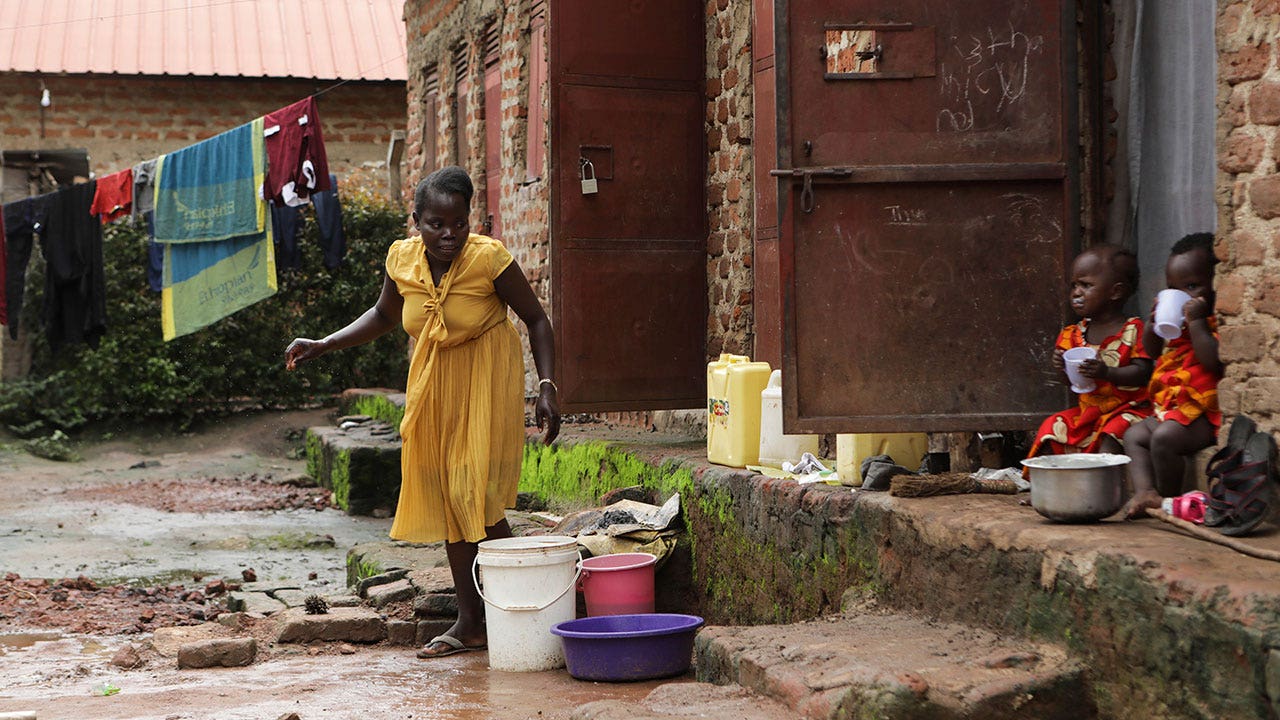
- Barbara Nabulo, a sickle cell disease patient, has emerged as a dedicated advocate for others facing the same condition in rural Uganda.
- Despite her own challenges with the disease, Nabulo serves as a counselor to fellow patients, offering them encouragement and hope.
- Nabulo regularly visits sickle cell patients in the hospital ward, providing them with guidance and reassurance.
Barbara Nabulo was one of three girls in her family. But when a sister died, her mother wailed at the funeral that she was left with just one and a half daughters.
The half was the ailing Nabulo, who at age 12 grasped her mother’s meaning.
“I hated myself so much,” Nabulo said recently, recalling the words that preceded a period of sickness that left her hospitalized and feeding through a tube.
‘REMARKABLE’ GENE-EDITING TREATMENT FOR SICKLE CELL DISEASE IS APPROVED BY FDA
The scene underscores the lifelong challenges for some people with sickle cell disease in rural Uganda, where it remains poorly understood. Even Nabulo, despite her knowledge of how the disease weakens the body, spoke repeatedly of “the germ I was born with.”
Barbara Nabulo cleans clothes at her home in Busamaga-Mutukula village in Mbale, Uganda, on April 25, 2024. Nabulo, a sickle cell disease patient, has emerged as a dedicated advocate for others facing the same condition. (AP Photo/Hajarah Nalwadda)
Sickle cell disease is a group of inherited disorders in which red blood cells — normally round — become hard, sticky and crescent shaped. The misshapen cells clog the flow of blood, which can lead to infections, excruciating pain, organ damage and other complications.
The disease, which can stunt physical growth, is more common in malaria-prone regions, notably Africa and India, because carrying the sickle cell trait helps protect against severe malaria. Global estimates of how many people have the disease vary, but some researchers put the number between 6 million and 8 million, with more than 5 million living in sub-Saharan Africa.
The only cure for the pain sickle cell disease can cause is a bone marrow transplant or gene therapies like the one commercially approved by the U.S. Food and Drug Administration in December. A 12-year-old boy last week became the first person to begin the therapy.
EX-NFL STAR TEVIN COLEMAN’S DAUGHTER ‘COULDN’T BREATHE ON HER OWN,’ PUT ON VENTILATOR AMID SICKLE CELL FIGHT
Those options are beyond the reach of most patients in this East African nation where sickle cell disease is not a public health priority despite the burden it places on communities. There isn’t a national database of sickle cell patients. Funding for treatment often comes from donor organizations.
In a hilly part of eastern Uganda that’s a sickle cell hot spot, the main referral hospital looks after hundreds of patients arriving from nearby villages to collect medication. Many receive doses of hydroxyurea, a drug that can reduce periods of severe pain and other complications, and researchers there are studying its effectiveness in Ugandan children.
Nabulo, now 37, is one of the hospital’s patients. But she approaches others like her as a caregiver, too.
After dropping out in primary school, she has emerged in recent years as a counselor to fellow patients, speaking to them about her survival. Encouraged by hospital authorities, she makes weekly visits to the ward that has many children watched over by exhausted-looking parents.
Nabulo tells them she was diagnosed with sickle cell disease at two weeks old, but now she is the mother of three children, including twins.
Such a message gives hope to those who feel discouraged or worry that sickle cell disease is a death sentence, said Dr. Julian Abeso, head of pediatrics at Mbale Regional Referral Hospital.
Some men have been known to divorce their wives — or neglect them in search of new partners — when they learn that their children have sickle cell disease. Frequent community deaths from disease complications reinforce perceptions of it as a scourge.
BONE MARROW TRANSPLANTS CAN REVERSE ADULT SICKLE CELL DISEASE
Nabulo and health workers urge openness and the testing of children for sickle cell as early as possible.
Abeso and Nabulo grew close after Nabulo lost her first baby hours after childbirth in 2015. She cried in the doctor’s office as she spoke of her wish “to have a relative I can call mine, a descendant who can help me,” Abeso recalled.
“At that time, people here were so negative about patients with sickle cell disease having children because the complications would be so many,” the doctor said.
Nabulo’s second attempt to have a child was difficult, with some time in intensive care. But her baby is now a 7-year-old boy who sometimes accompanies her to the hospital. The twin girls came last year.
Speaking outside the one-room home she shares with her husband and children, Nabulo said many people appreciate her work despite the countless indignities she faces, including unwanted stares from people in the streets who point to the woman with “a big head,” one manifestation in her of the disease. Her brothers often behave as if they are ashamed of her, she said.
Once, she heard of a girl in her neighborhood whose grandmother was making frequent trips to the clinic over an undiagnosed illness in the child. The grandmother was hesitant to have the girl tested for sickle cell when Nabulo first asked her. But tests later revealed the disease, and now the girl receives treatment.
“I go to Nabulo for help because I can’t manage the illness affecting my grandchild,” Kelemesiya Musuya said. “She can feel pain, and she starts crying, saying, ‘It is here and it is rising and it is paining here and here.’”
Musuya sometimes seeks reassurance. “She would be asking me, ‘Even you, when you are sick, does it hurt in the legs, in the chest, in the head?’ I tell her that, yes, it’s painful like that,” Nabulo said.
Nabulo said she was glad that the girl, who is 11, still goes to school.
The lack of formal education is hurtful for Nabulo, who struggles to write her name, and a source of shame for her parents, who repeatedly apologize for letting her drop out while her siblings studied. One brother is now a medical worker who operates a clinic in a town not far away from Nabulo’s home
“I am very happy to see her,” said her mother, Agatha Nambuya.
She recalled Nabulo’s swelling head and limbs as a baby, and how “these children used to die so soon.”
But now she knows of others with sickle cell disease who grew to become doctors or whatever they wanted to be. She expressed pride in Nabulo’s work as a counselor and said her grandchildren make her feel happy.
“At that time,” she said, recalling Nabulo as a child, “we didn’t know.”
-

 Education1 week ago
Education1 week agoHow Counterprotesters at U.C.L.A. Provoked Violence, Unchecked for Hours
-

 Politics1 week ago
Politics1 week agoAustralian lawmakers send letter urging Biden to drop case against Julian Assange on World Press Freedom Day
-

 World1 week ago
World1 week agoBrussels, my love? Champage cracked open to celebrate the Big Bang
-
News1 week ago
A group of Republicans has united to defend the legitimacy of US elections and those who run them
-

 Politics1 week ago
Politics1 week agoHouse Dems seeking re-election seemingly reverse course, call on Biden to 'bring order to the southern border'
-

 World1 week ago
World1 week ago‘It’s going to be worse’: Brazil braces for more pain amid record flooding
-

 Politics1 week ago
Politics1 week ago'Stop the invasion': Migrant flights in battleground state ignite bipartisan backlash from lawmakers
-

 World1 week ago
World1 week agoGerman socialist candidate attacked before EU elections

